Half a Chance: Stories of Jewish Delawareans
Living in a Strange Land: Maintaining Tradition
All immigrants face the same challenge: how to preserve their cultural values as they become American. Jewish Delawareans maintained their Jewish identity through their synagogues, homes, organizations, and philanthropy. Like most religious groups in 19th century America they challenged authority and made changes in ritual that helped them blend in with American norms. But they also clung to their Jewishness as a cherished heritage from the Old World that helped to define them as a people.
Jews formed synagogues to practice their religion and transmit it to their children. Since Jewish immigrants to Delaware came from different countries and brought varying ideas of how to observe Judaism, they formed several synagogues.
Women played an important role in teaching religious customs to their children and keeping Jewish traditions alive in their homes through observence of the Sabbath and Jewish holidays. Jews formed numerous organizations to meet the needs of community members and to make certain they did not become a burden to the broader community. The Talmud teaches that the highest form of tzedakah (justice) is giving that gets a person back on his own feet. Jewish philanthropists supported both Jewish organizationations and those that benefited the community at large.
How does your family maintain its traditions?
Serving the Community Creativity is a Gift Earning a Living
Herbert Drooz
Rabbi Herbert Drooz served as rabbi and rabbi emeritus of Congregation Beth Emeth, the reform synagogue, from 1943 until his death in 1999. Known for his interest in social justice, Rabbi Drooz was outspoken against racial and other discrimination. He was actively involved with the Round Table of Christians and Jews, the National Association for the Advancement of Colored People, and the Veterans Hospital, and was vice president of the Citizen’s Housing Association.
Morris Faber
Rabbi Morris Faber became Delaware’s first permanent rabbi when he was hired to lead Ohabe Shalom in 1880. At the time, there were only about 100 Jewish residents in Wilmington. The rabbi and his wife Regina had to work at other jobs, including teaching, and running trimming and variety stores, in order to support their family.

Leonard Gewirtz
(Born in 1918, Brooklyn, New York)
Rabbi Leonard Gewirtz served as rabbi and rabbi emeritus of Adas Kodesch, the traditional synagogue, from 1948 until his death in 2003. Rabbi Gewirtz became a rabbi because he wanted to encourage Jews to be true to their faith. He wanted them to learn Hebrew, keep kosher, and marry within the faith. Rabbi Gewirtz began Delaware’s first Bat Mitzvah program for girls and led the Minyonaires, a group that brought together elders and teen-age boys. He was a member of the Rabbinical Council of America and a founder of the Rabbinical Association of Delaware.
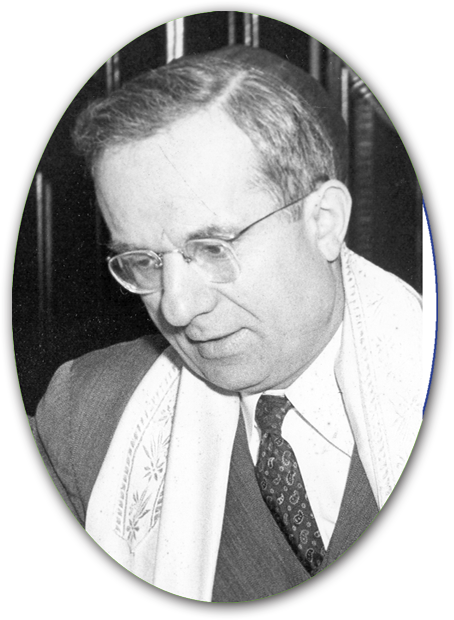
Jacob Kraft
(Born in 1905, Poland)
Rabbi Jacob Kraft served as rabbi and rabbi emeritus of Congregation Beth Shalom, the conservative synagogue, from 1930 until his death in 1987. During World War II, he served as a chaplain in Europe. An active member of National Council of Christians and Jews, Kraft was one of the founders of the clergy dialogue, which brought leaders of different religions together to foster a deeper understanding of each other’s beliefs. He hosted “The Rabbi Speaks” on WDEL for 30 years. Rabbi Kraft served as head of the Ethics Committee of the National Rabbinical Association.

Herman Rezits
(Born ca. 1864, Russia)
Rabbi Herman Rezits was an integral part of the life cycle of events of the Wilmington Jewish community from 1887 until his death in 1930. He came to Wilmington to serve as rabbi, cantor, and shochet (ritual slaughterer) at Adas Kodesch. He had a rabbinical diploma from Kovno and had recently arrived in the United States.

Ethel Barros
(Born ca. 1906, Russia)
Ethel Barros was an active member of the Dover community from 1931 until her death in 1992. Before there was a synagogue in Dover, she kept Jewish people together through the Jewish Women’s Social Club. Later she and her husband Emanuel helped found Congregation Beth Sholom. She opened her home annually for Dover Day celebrations and was president of the Dover Century Club. Ethel assisted her husband Emanual in the family store, Emanuel’s, and raised three children.
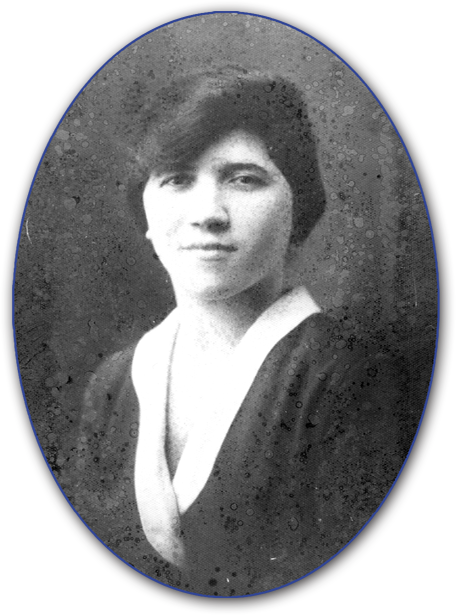
Florence Bronfin
(Born in 1898, Russia)
When Florence Levy came to the U.S. with her family in 1911 she became a citizen through her father. When she married Jacob Bronfin in 1919, she lost her citizenship until her husband was naturalized. Florence Bronfin raised six children -- one of whom became a rabbi -- and worked in the family grocery store at Third and Tatnall streets. Every Friday she prepared a traditional Sabbath with the help of her mother, Rifka Levy, who lived with the family.
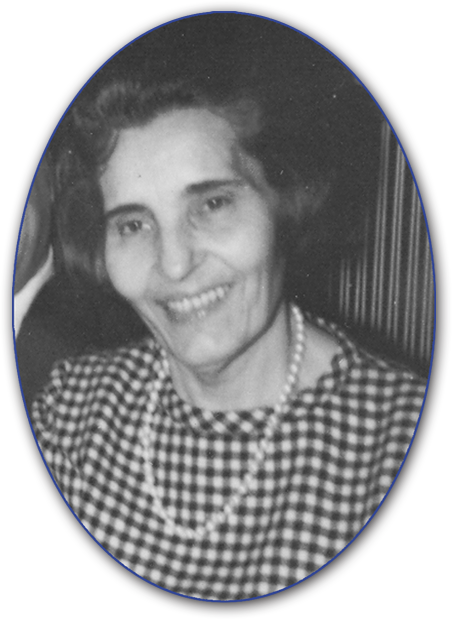
Rose Isaacs
(Born in 1908, Hungary)
Rose Isaacs raised four children and conducted a well-known catering business from her home. She also taught many women to prepare kosher food. Rose was an active member of the Sisterhood of Congregation Beth Shalom, as well as Hadassah, the Jewish Community Center, and the Jewish Federation of Delaware.

Rose Kluger Keil
(Born ca. 1890, Galicia, Poland)
In 1952, when she was already a grandmother, Rose Kluger Keil’s novel, A Woman Called Chaye, the story of a woman from Galicia who is promised in marriage to a man she has never seen, was published by Exposition Press. Keil, who was the mother of 2 daughters and stepmother of 7 Keil children, explained that it took her 12 years to write the book because her house was “like Grand Central Station - I always have to leave my writing to see about the cooking, watch a grandchild or do some shopping.” Her second husband was Max Keil, who is featured in the business section.

Harry Bluestone
(Born ca. 1901, New York)
Harry Bluestone served as executive director of the Jewish Community Center from 1945 to 1960. In 1946, he organized a Hebrew Speaking Circle, Hug Ivri, which is reputed to be the oldest such club in the U.S. Harry Bluestone’s historical reviews of Delaware’s Jewish agencies preserve important information about the state’s Jewish community. He was one of the founders of the National Association of Social Workers and of the Jewish Historical Society of Delaware.
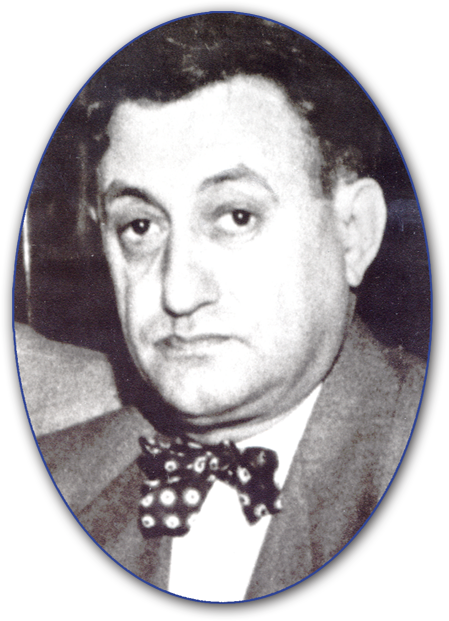
Ben Codor
(Born ca. 1904, Russia)
Ben Codor was the first executive director of the Jewish Federation of Delaware, which was formed in 1935 to serve as the Jewish community’s central fund-raising and planning organization. At the same time, Codor served as executive director of the Jewish Welfare Society, today’s Jewish Family Service. Codor served with distinction from 1935 until his untimely death in 1952.
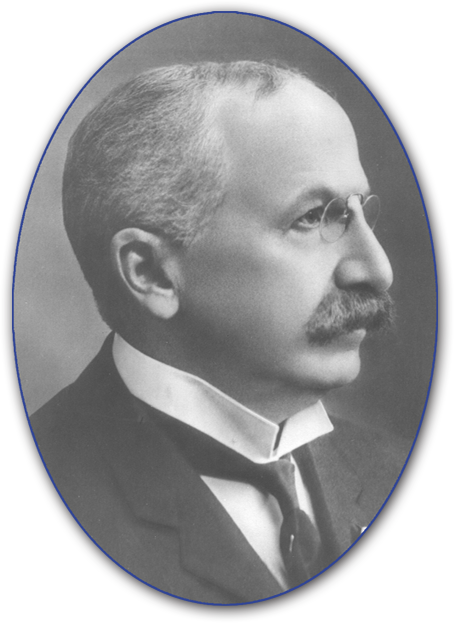
J. Harry Gordon
(Born ca. 1848, Germany)
J. Harry Gordon dedicated his life to social welfare work. In the 1890s, he helped establish the first Hebrew School at Adas Kodesch, a Wilmington chapter of B’nai B’rith, and the Hebrew Charity Association, which became Jewish Family Service. He served as superintendent of the Hebrew Charity Association from its founding in 1899 until the late 1920s. Gordon was the first president of the Young Men’s Hebrew Association and secretary of the Mutual Savings and Loan Association. In his will, Gordon left everything to chairty.

Rosa Topkis
(Born in 1847, Pindus Mountains,
sometimes known as Greece, sometimes Turkey)
Rosa Avrach Topkis, the mother of five sons and one daughter, was the guiding force in establishing two of Wilmington’s most important Jewish organizations, today’s Jewish Community Center and the Kutz Home for the elderly. In the late 1890s, she organized women to assist pregnant women, who were confined to their homes. In1902, she expanded the organization to help the sick and needy. Her organization became the Bichor Cholem, which evolved into today’s Kutz Home. In 1901, she called a meeting to organize a social club for young men. The Young Men’s Hebrew Association, today’s Jewish Community Center, was the result. Perhaps most importantly, the kindness and sympathy of this skilled woman influenced her six children, all of whom are featured in this exhibition, to remain dedicated to the community.

Arsht Family
(Sam born in 1910, Wilmington, Delaware;
Roxana born in 1915, Wilmington, Delaware)
Arsht Hall, the home of the Academy of Life Long Learning at the University of Delaware, is named in honor of attorney Sam Arsht and his wife, Judge Roxana Arsht. Their generosity and vision were central to the success of adult education and the Academy of Lifelong Learning. The Arshts’ numerous contributions to Delaware include the Roxana Cannon Arsht Surgicenter, the Cancer Care Connection, Planned Parenthood, and Tower Hill School. Roxana Arsht is featured in the legal section.
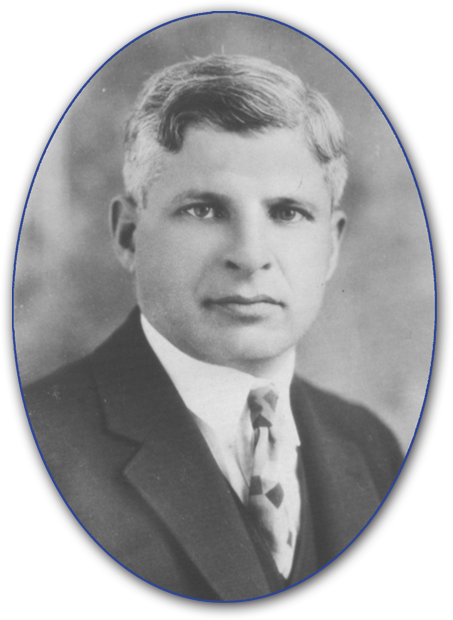
Harry Cohen
(Born ca. 1883, Russia)
During his lifetime, Cohen supported Delaware’s Jewish organizations, institutions in the broader community, and Palestine, pre-state Israel. When he died in 1957 he left a foundation to continue to support the causes he believed in. The Harry Cohen Foundation has given over 4 million dollars to a variety of Jewish institutions and synagogues locally and in Israel. It also supports Delaware’s hospitals, the Needy Family Fund, and Toys for Tots. When Harry Cohen emigrated to Wilmington in the early 1900s, he earned a living as a laborer in the morocco (leather-making) factories, a barber, a grocer, and eventually as owner of an Ogden Howard furniture store.

Max and Jesse Cohen
(Max born ca. 1872 in Russia;
Jesse born ca. 1882 in Russia)
Max and Jesse Cohen were benefactors of Delaware’s Jewish community, of educational and civic causes in the broader community, and of Palestine, pre-state Israel. Both Cohens were known for their interest and support of people of all creeds. The Cohens came to Wilmington in 1904 and opened a grocery store on the east side of town. After 20 years, Max sold the store and entered the real estate business.

Milton and Hattie Kutz
(Milton born in 1883, Indiana;
Hattie born ca. 1890)
Milton and Hattie Kutz were both actively involved in Jewish and non-Jewish causes. Milton served as president of the Jewish Federation of Delaware, the Jewish community’s central fund-raising and planning organization, from 1939 to 1949. Both Kutzes gave generously in their wills, establishing the Milton and Hattie Kutz Foundation, the Kutz Assistance Fund for interest-free loans to needy families, Kutz Hall at Brandeis University, and the Kutz Home. The Kutz Foundation funds programs and scholarships in both the general community and the Jewish community. Milton and Hattie Kutz came to Wilmington in 1933 when Milton became assistant manager of the DuPont Company’s electrochemicals department.
Topkis Family
The Topkis siblings - David, Louis, William, Sallie, Charles, and Harry - became the backbone of Wilmington's Jewish community in the first third of the twentieth century. They served as officers of the traditional synagogue, Adas Kodesch, the reform Temple of Truth, the Young Men's Hebrew Association, and the Hebrew Charity Association and gave generously to all of them. Sallie started the National Council of Jewish Women. In addition, William and Louis were actively involved in promoting pre-state Israel. William went to Palestine in 1923 to establish the first American Tourist Bureau. He also was the cataylst for Palestine Awakening, the first film to interest Jews in migration to Palestine